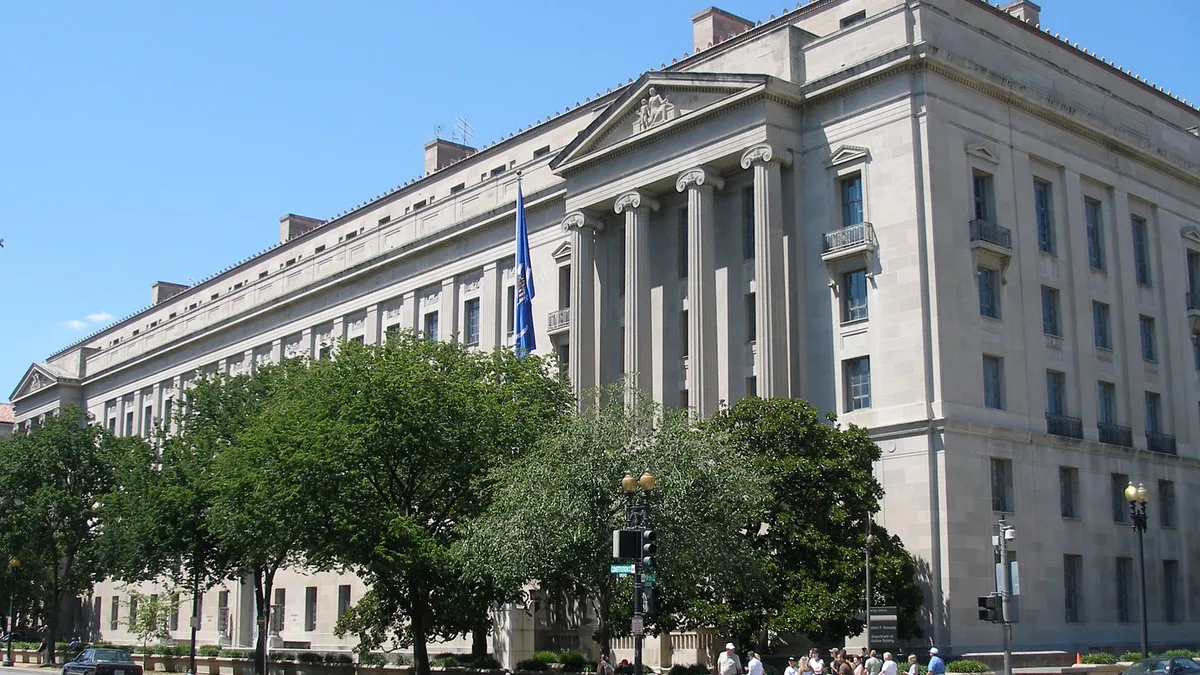Dive Brief:
-
Sanford Health and related entities have agreed to pay $20.3 million to settle allegations that one of its neurosurgeons received kickbacks, the Department of Justice said Monday.
-
The neurosurgeon allegedly received kickbacks stemming from his use of implantable devices sold by his physician-owned distributorship (POD). Sanford settled without admitting liability.
- The settlement comes months after members of the Senate Finance Committee pushed CMS for information about PODs, which some top senators have said are "inherently suspect."
Dive Insight:
In the Sanford case, which involves Sanford Health, Sanford Medical Center and Sanford Clinic, the South Dakota-based healthcare provider was accused of failing to act on warnings that one of its neurosurgeons was performing medically unnecessary procedures using devices from his POD.
DOJ said colleagues of the neurosurgeon and other people repeatedly raised the issue with Sanford. As such, DOJ accused Sanford of knowing that the neurosurgeon was using devices in which they had a "substantial financial interest" to perform unnecessary procedures. Sanford continued to employ the person, who continued to profit from unnecessary procedures, according to DOJ.
Working with the testimony of two Sanford surgeons who blew the whistle on their colleague, DOJ argued the situation amounted to the knowing submission of false claims to federal healthcare programs.
Sanford agreed to pay $20.3 million to settle those allegations and also entered into a Corporate Integrity Agreement (CIA) with HHS' Office of Inspector General. Under the terms of the CIA, Sanford will run a compliance program, establish a risk-assessment program, and hire an independent body to review its Medicare and Medicaid claims.
The DOJ said the actions were part of a long-running effort to tackle perceived problems with PODs.
"More than six years ago, the Department of Health and Human Services' Office of the Inspector General warned in a fraud alert that PODs were inherently suspect under the Anti-Kickback Statute. Unfortunately, these distributors remain questionable," Curt Muller, special agent in charge, HHS Office of Inspector General, said in a statement.
The controversy around PODs stems from physicians owning stakes in the organizations while also using their products, creating a financial incentive to choose and use certain devices. That financial incentive has attracted the attention of HHS-OIG and the Senate Finance Committee.
The renewed focus on PODs comes at a time when HHS is considering amending physician self-referral and anti-kickback laws. HHS presented the changes as a response to the move from fee-for-service to value-based healthcare. However, HHS is reluctant to extend the approach to implantable medical devices, stating that they could enable manufacturers to disguise improper payments.










